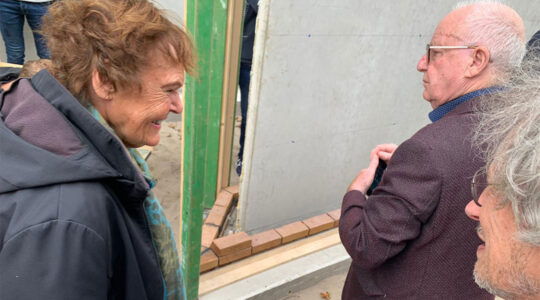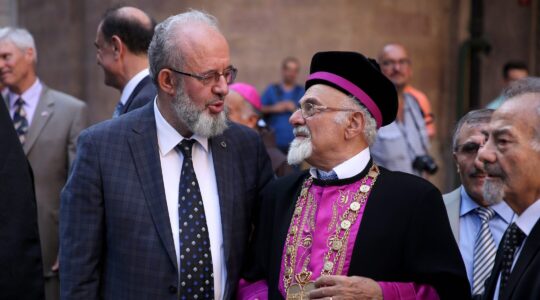NEW YORK (JTA) — Rabbi Meir Zlotowitz, who built his legacy around the power of books and the need to spread Torah knowledge, has died.
Zlotowitz, the founder of ArtScroll Publications, died Friday. He was 73.
A Brooklyn native, Zlotowitz graduated from Mesivta Tifereth Jerusalem yeshiva in downtown Manhattan. He then joined a graphics studio named ArtScroll Studios, which at the time produced items such as wedding and bar mitzvah invitations. Zlotowitz eventually paired up with Rabbi Nosson Scherman and the two began to write copy for the business.
In 1975, Scherman and Zlotowitz published an English translation and commentary on the Book of Esther that sold 20,000 copies in two months. From this endeavor, ArtScroll Publications was born.
ArtScroll and its parent company, Mesorah Publications, became one of the most renowned and prolific publishers of religious Jewish texts for the English-speaking market, producing more than 700 books by 1990. Exquisitely designed, often with tooled cover designs meant to evoke old leather volumes, ArtScroll’s prayer books, Bibles, collections of Jewish wisdom and other “seforim” cornered the Orthodox market in recent years.
ArtScroll’s edition of the Humash, or Five Books of Moses — named the “Stone Humash” in honor of one of its underwriters — was notable, and sometimes notorious, for commentary and translations that in keeping with Zlotowitz’s traditionalist ideology shunned most modern interpretations. As Zlotowitz put it in the introduction to ArtScroll’s first book, “Belief in the authenticity of every book of the Torah is basic to Jewish faith, and we proceed from there. … I consider it offensive that the Torah should need authentication from the secular or so-called ‘scientific’ sources.”
The ArtScroll Siddur, or prayer book, meanwhile, while equally traditionalist, became popular for beginners and those new to Orthodoxy for its reader-friendly page designs and careful instructions in English.
Rabbi Chaim Dovid Zwiebel, executive vice president of Agudath Israel of America, told the New York-based religious news website Vos Iz Neias: “The limud haTorah [Torah study] that was instigated by accessibility, which is what ArtScroll did, has really taken the idea of the masses having the access to Torah and every Jew finding his place in Torah to new heights.”
Zlotowitz said of his life’s work in a 2012 interview with Chananya Kramer of Kolrom Multimedia, quoted in a tribute to him in Vos Iz Neias: “There are very few things that one can do today that will still be here and vibrant and in libraries in three, four, five hundred years from now. It is not limited to any geographic entity. It’s not limited to any time entity. Books are truly timeless and affect eternity in different ways.”
He is survived by his wife, Rachel, along with eight children, and more than 50 grandchildren and great-grandchildren.
JTA has documented Jewish history in real-time for over a century. Keep our journalism strong by joining us in supporting independent, award-winning reporting.





